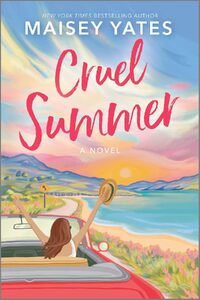One of the topics of discussion at Mythcon last month was whether fantasy and science fiction
are social commentary in disguise. Our big-picture conclusion was that it could
be, but didn't have to be -- and it works better if the author isn't trying to
make a statement.
Fantasy and science fiction are well-suited for social commentary because the
unrealities of these genres allow authors to put a little distance between the
topic and the readers. When the story takes place on another planet, in another
world or with characters who aren't human, we can look at any social issues
presented in the story more objectively and less defensively. People tend to
put barriers up and get defensive when they feel like they're being accused or
criticized, but when it's about someone else, they might actually get the
message. The original Star Trek series frequently had the crew
visit alien planets that embodied various social issues as seen on contemporary
earth.
But, as the famous quote goes, if you want to send a message, use Western
Union. A heavyhanded message, even when delivered through another world, won't
have the desired effect. What's far more effective is when the author's
experiences and attitudes subconsciously seep into the story. "Any piece of
fiction more than four pages long will have a theme, but it may not be
intended," said Tim
Powers, the convention's author guest of honor. "Anyone has obsessions,
hatreds and compulsions, and they show up more effectively when they're not
given conscious thought." In fact, the conscious -- what the author thinks he
ought to believe -- and the subconscious -- what the author really believes --
may disagree, and when the author tries to consciously impose a message about
what he thinks he ought to be saying, the result may be inconsistent messages.
The message may even be in the eye of the reader rather than in the author's
intention. As Powers
said, "I never deliberately have anything to say, and if I saw I had
accidentally said something, I cut that out. My ghosts are just ghosts. They're
not symbols."
I had to agree because I write to entertain. I've occasionally realized I've
put something of my world view into a story, but I'm not writing to persuade
anyone about anything. And now I've put that in writing so that on the off
chance that my work goes on to be studied in the future, any students forced to
write essays about the deeper meanings in my work will have proof that I didn't
intend a deeper meaning.
The convention season is about to pick up for me. I've got Armadillocon later this
month, then FenCon in
September and MileHiCon
in Denver in October, so I'll have plenty of road reports.
1 comment posted.


 © 2003-2025 off-the-edge.net
all rights reserved Privacy Policy
© 2003-2025 off-the-edge.net
all rights reserved Privacy Policy